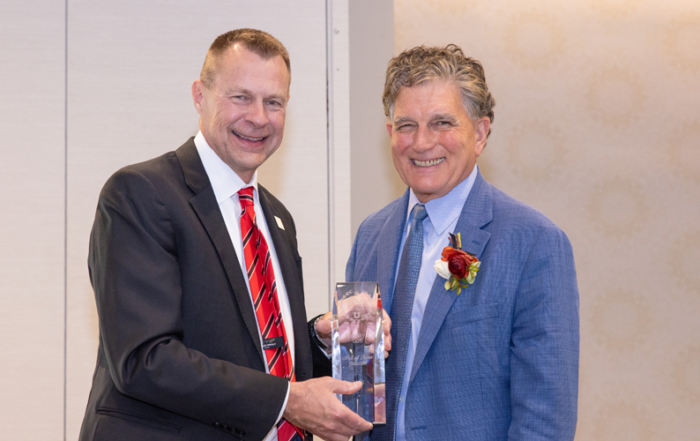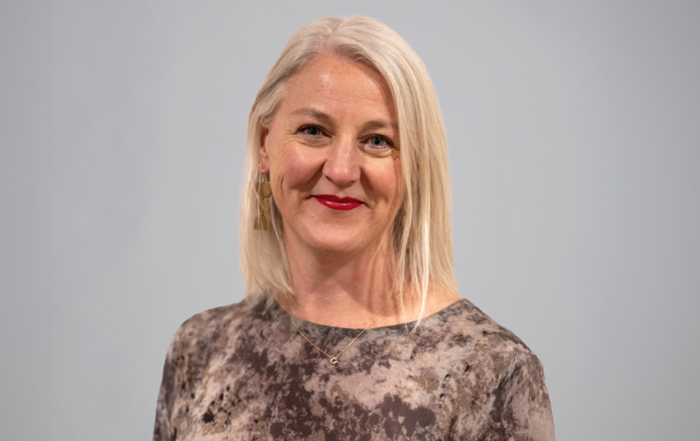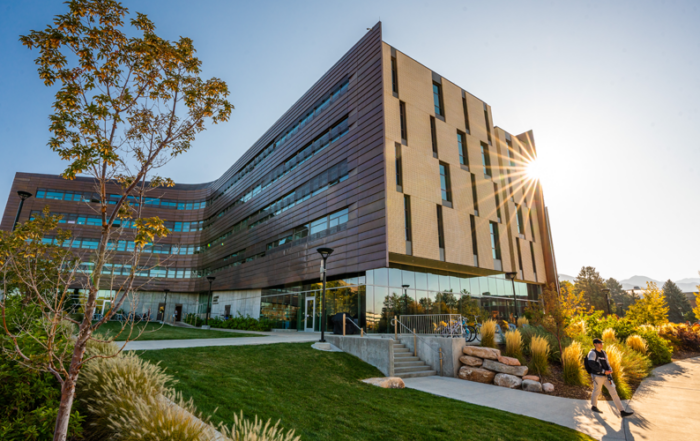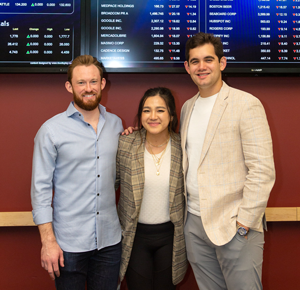
Institutes, Centers, and Initiatives
Gain real-world experience and develop your leadership skills.
The Eccles School hosts several Institutes, Centers, and Initiatives that provide students with the opportunities to participate in research, gain real-world experience in internships and fellowships, and network and travel with the broader community. Whether it’s managing a $1,000,000 portfolio, participating in a impact-investing internship, working on projects in Ghana, strengthening your leadership skills, researching and helping to craft policy, or starting your own business, the possibilities to grow, gain experience, and make a difference, are endless.
Institutes
Goff Strategic Leadership Institute
The Goff Strategic Leadership Institute builds a bridge between the classroom and community for all University of Utah students. Each Goff experience is anchored in hands-on learning; we work with organizations across the world to provide students transformational learning opportunities.
Goff utilizes real projects and experiences as a catalyst for both student and organizational growth. Goff students actively contribute to the growth and success of companies and community organizations, all while building critical strategic leadership skills.
Student Opportunities:
- Experiential learning through the Scholars, Trailblazers and Explorers programs
- Programs and events open to all majors to build strategic leadership across academic disciplines
- Building a community of strategic leaders
Kem C. Gardner Policy Institute
The Kem C. Gardner Policy Institute provides independent economic, demographic, and public policy data, as well as research and analysis to support informed decision-making throughout Utah and beyond.
Student Opportunities:
- Undergraduate scholarships
- Internships
- Graduate student assistantships
 Lassonde Entrepreneur Institute
Lassonde Entrepreneur Institute
Lassonde Entrepreneur Institute is a nationally ranked hub for student entrepreneurs and innovators at the University of Utah. Whether you want a deep dive or only have an hour, Lassonde has something for all students wanting to learn how to become a founder, creator, or change-maker.
Student Opportunities:
- Live, Create, Launch at Lassonde studio
- Grants, workshops, makerspace, expert mentors, scholarships, and more!
- Lassonde+X three-course academic program for all undergraduate majors
- Lassonde Founders undergraduate residential scholarship program
- Summer at Lassonde program
 Marriner S. Eccles Institute for Economics and Quantitative Analysis
Marriner S. Eccles Institute for Economics and Quantitative Analysis
The Marriner S. Eccles Institute for Economics and Quantitative Analysis provides transformational, interdisciplinary opportunities for students in fields related to economics.
Student Opportunities:
- Quantitative Analysis of Markets & Organizations (QAMO) major
- Webinars, conferences, and events
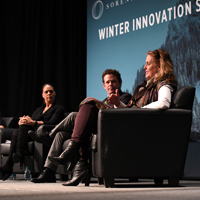
Sorenson Impact Institute
Sorenson advances the understanding and application of free enterprise principles to create scalable, sustainable societal change. They create innovative, data-driven approaches to difficult social and public health challenges.
Student Opportunities:
- Internship opportunities in data science, impact investing, policy, and storytelling
- Work with the Social Innovation Fund, a White House initiative, to manage the nationwide Pay for Success program
Centers
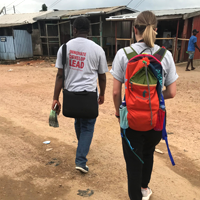
Center for Business, Health, and Prosperity
The Center for Business, Health, and Prosperity integrates innovative entrepreneurship with health-focused practices to enhance global well-being. Join our collaborative hub to advance prosperity science and improve quality of life.
Student Opportunities:
- Prosperity U Experience: Multidisciplinary program open to all majors, fostering sustainable change and community impact.
- Prosperity U Global Experience: Transformative programs in Ghana, offering real-world impact and skill development. Explore multiple options and enter your changemaker era.

Doman Innovation Studio
The Doman Innovation Studio serves as an incubator for product and project development, dedicated to empowering both individual entrepreneurs and startup organizations within our campus and the broader community. Our innovative cohort model supports founders in tackling their “next hardest step,” whether that involves product development, market alignment, operational processes, or fundraising preparation.
Student Opportunities:
- Doman Startup Studio: Join a 7-week, cohort-based incubator designed for projects that have already demonstrated potential through initial transactions.
- Praxis Course: Collaborate with real-world early-stage companies, honing your entrepreneurial skills, gaining invaluable startup experience, and delivering tangible results.
Impact & Prosperity Epicenter
This Impact & Prosperity Epicenter is a living-learning space where students can live and find opportunities to become thoughtful global citizens committed to enriching the lives of others. Among other offices, students can find the Center for Business, Health, and Prosperity and the Sorenson Impact Institute within the Epicenter.
 Ivory Innovations
Ivory Innovations
Ivory Innovations is championing breakthroughs and providing support to companies striving to find ways to alleviate the housing affordability crisis. Students will tackle this real-world dilemma by researching cutting-edge technologies and coming up with new and innovative solutions.
Student Opportunities:
 Ivory-Boyer Real Estate Center
Ivory-Boyer Real Estate Center
The Ivory-Boyer Real Estate Center prepares the next generation of leaders in real estate through academic programs, degree options, executive education programs and the Utah Real Estate Challenge.
Student Opportunities:
- Undergraduate and Graduate Real Estate Challenge Competitions
- Travel abroad opportunities
- MRED student mentorship program
Stena Center for Financial Technology
Sorenson Center for Discovery & Innovation Studies
The Sorenson Center for Discovery & Innovation Studies is a dedicated research center for the David Eccles School of Business. They support post-doc fellowships, faculty research, research conferences, and high-level policy work.
The Student Investment Fund (SIF) allows student to manage a $1 million portfolio of exchange-listed equities, ETFs, and money market investments.
Initiatives
AdThing Utah
Developed by the Eccles School and supported by Student Media, AdThing is a real, creative ad agency that works on real projects with real clients, under real professionals.
Student Opportunities:
- Hands-on creative experience
- Ad development for real clients
- Professional mentorship
Kahlert Initiative on Technology
The Kahert Initiative on Technology is focused on creating the most digitally literate students in the world regardless of degree.Student Opportunities
- Digital Literacy Certificate 7-course program
- “Cyber-Summer” 12-week course experience
- Internships
Student Investment Fund
The Student Investment Fund (SIF) provides undergraduate students with the opportunity to manage a $1,000,000 portfolio of exchange-listed equities, ETFs, and money market investments. Students perform both individual and group research projects, learn about various analytical techniques, and make presentations before leading finance practitioners.Student Opportunities
- Student run $1,000,000 Investment fund
- Open to Finance and QAMO majors


